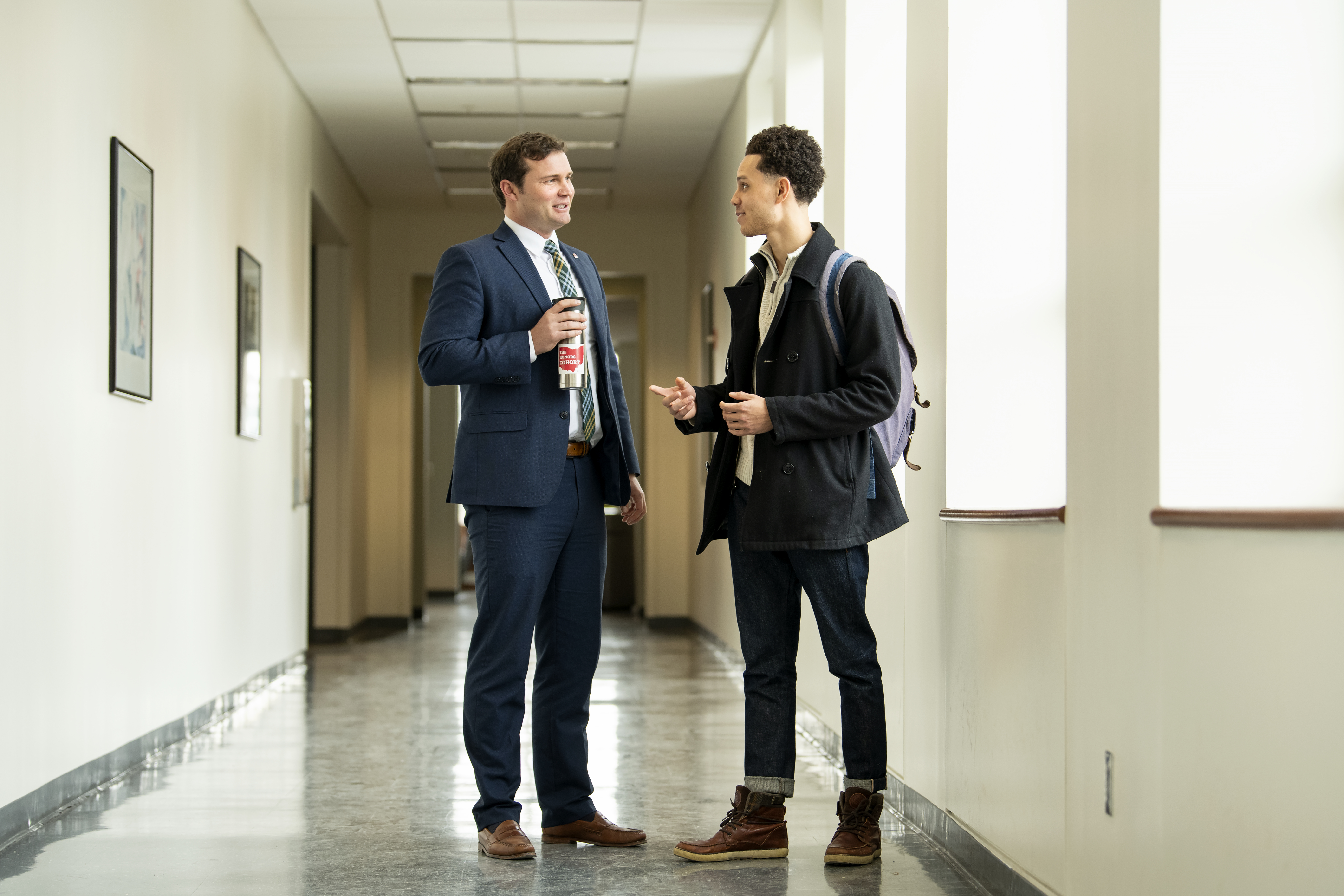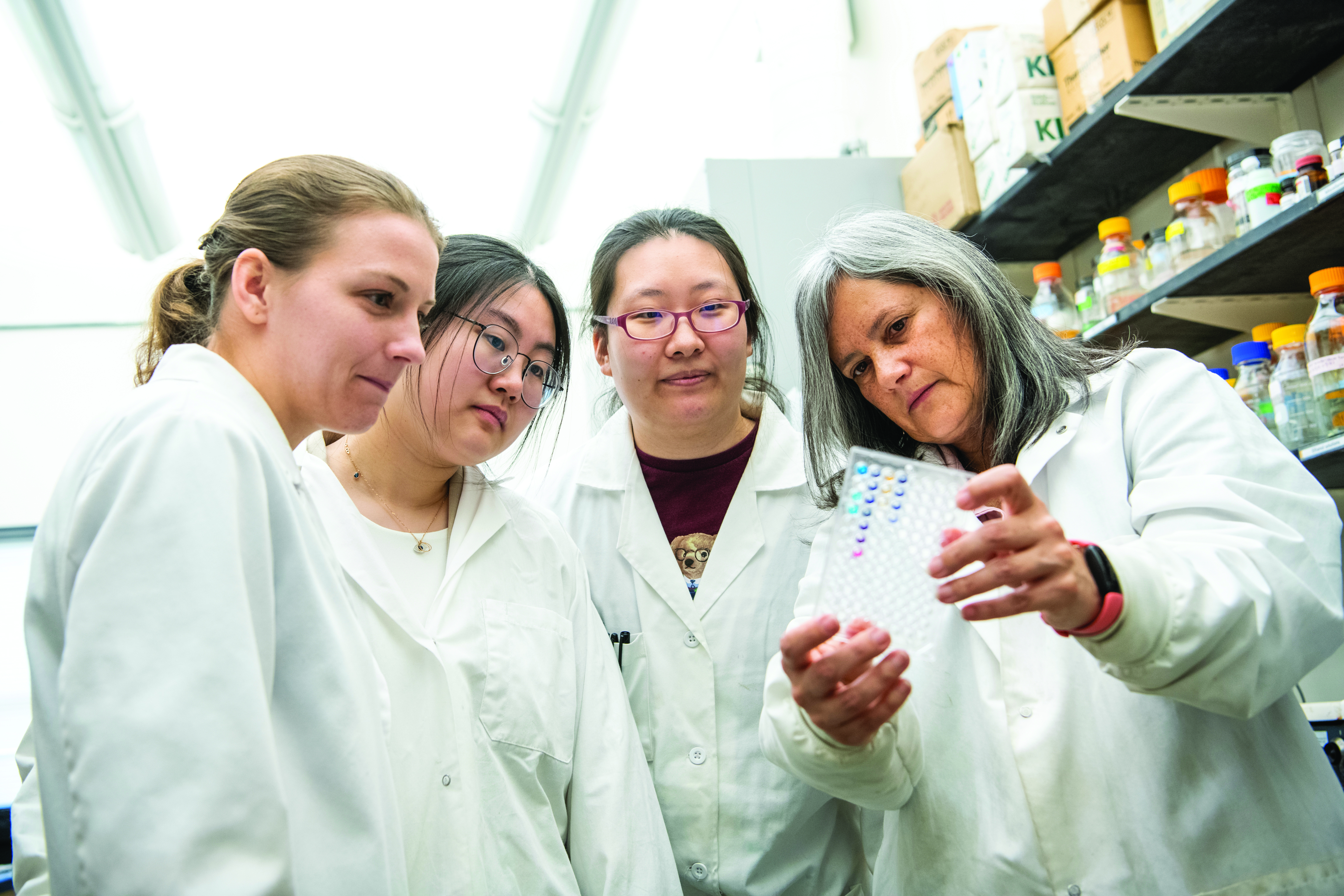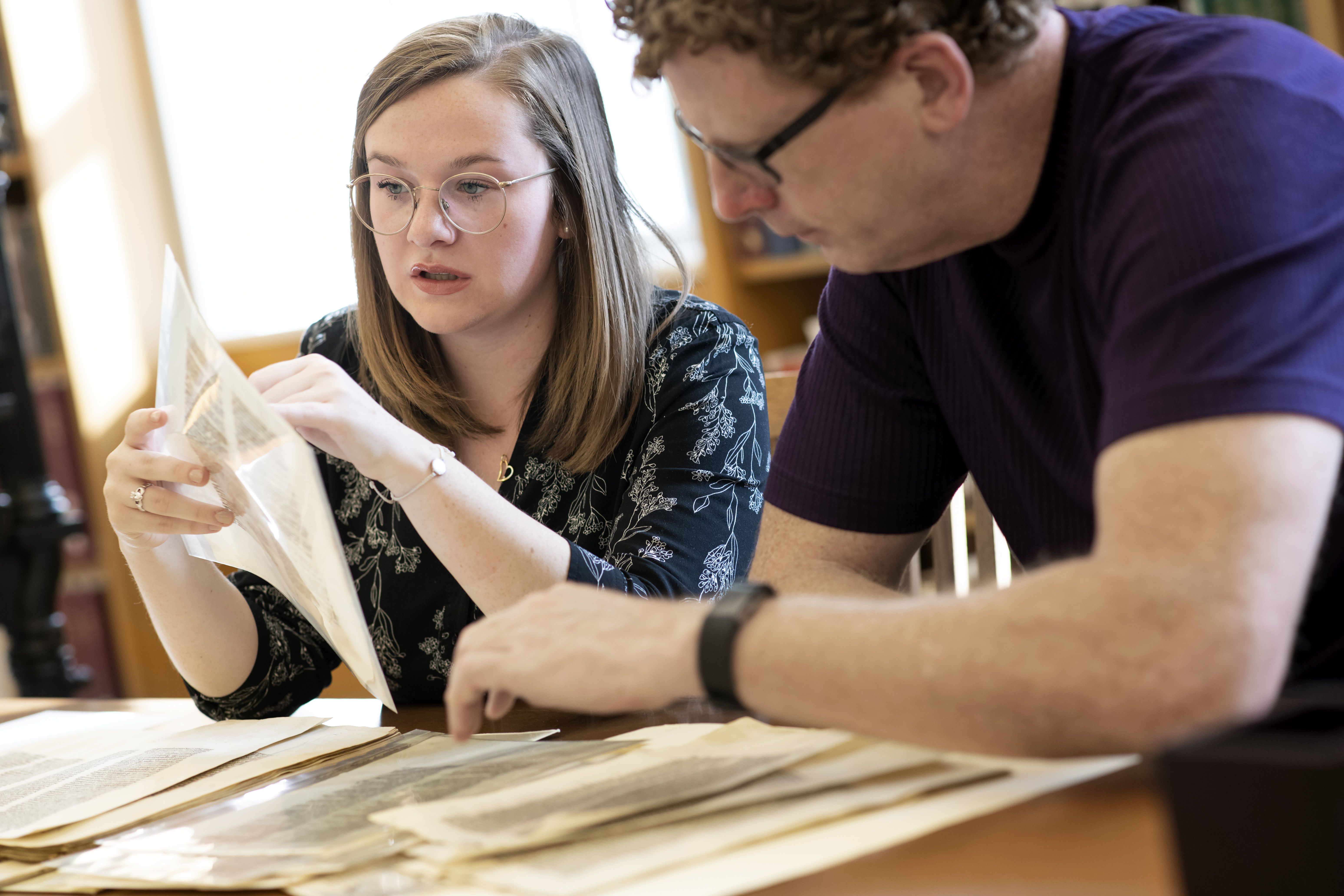Mentoring Training at Ohio State
NOTE: Some of these focused on mentoring of faculty but might still be useful in learning about mentoring of graduate/professional students and postdocs.
- Michael V. Drake Institute for Teaching and Learning. Advances at-scale professional learning, evidence-based instructional strategies, and research and policy that elevate the work of all who teach across the university.
- Supporting Students Through Tragedy. Guidance on how to best support trainees through tragedy.
- Teaching and Learning Resource Center. Provides support and training for Ohio State’s teaching community pertaining to the university’s eLearning toolset.
- College of Engineering Faculty Professional Development Workshop Series. Developed to inform the new faculty within the first year of their arrival, or other interested faculty about the resources available in the college and the university.
- College of Medicine Faculty Advancement, Mentoring, and Engagement (FAME). Comprehensive faculty career development throughout all domains of an academic medical center.
- Imagined Futures Initiative. Applies arts and humanities strategies to build preparation for diverse career paths into graduate offerings, equipping students and alumni to find meaningful work and address critical societal challenges. Faculty are welcome to join the community of practice, which meets monthly.
- Destination Ohio State University – Researcher, Mentor, Teacher (DOSU-RMT). The DOSU-RMT program is a joint effort between the Ohio State Office of Postdoctoral Affairs and Columbus State Community College. One element of this program is an opportunity for Ohio State postdocs to gain teaching experience at Columbus State by serving as an instructor of record for undergraduate courses. Postdocs are matched to Columbus State faculty who align with their area of research expertise and are provided structured training and mentorship focused on developing teaching expertise. Once you have completed the training, you are eligible to serve as paid, adjunct faculty (and instructor of record) at Columbus State. Many postdocs have gone on to be hired on a permanent adjunct basis at Columbus State. If you are interested in this program, please reach out to the Office of Postdoctoral Affairs (osupostdocs@osu.edu).
Other Resources
- GREAT Appropriate Treatment of Research Trainees Working Group
- The Science of Effective Mentoring in STEMM – Online Guide
- National Research Mentoring Network
- Top 10 Tips to Maximize Your Mentoring
- Mastering Your Ph.D: Mentors, Leadership, and Community
- MentorNet
- Optimizing the Practice of Mentoring: An Online Curriculum for the Professional Development of Research Mentors
Mentoring Resources by Beronda Montgomery
- Lessons from Plants: A conversation with Beronda Montgomery
- My most memorable mentors? Plants
- Mapping a Mentoring Roadmap and Developing a Supportive Network for Strategic Career Advancement
- Guiding the Way: Mentoring Graduate Students and Junior Faculty for Sustainable Academic Careers
- “Take the Fifth”: Mentoring Students Whose Cultural Communities Were Not Historically Structured Into U.S. Higher Education
- From Deficits to Possibilities: Mentoring Lessons from Plants on Cultivating Individual Growth through Environmental Assessment and Optimization
Mentoring Training Online
- University of Wisconsin—Madison Center for the Improvement of Mentored Experiences in Research (CIMER): Provides a menu of training services along with instructions on how to request a training, curricula for all career stages (undergraduate through senior faculty), guidance and considerations on implementation, and customized evaluation services through the CIMER Assessment Platform (CAP).
- National Research Mentoring Network (NRMN): Provides free, online, self-paced courses focused on all aspects of mentorship to researchers across all career stages in the biomedical, behavioral, clinical, and social sciences with evidence-based mentorship and professional development programming that emphasizes the benefits and challenges of diversity, inclusivity and culture.
- The Science of Effective Mentorship in STEMM: Report & complementary interactive guide
Mentor-Mentee Agreement
Graduate and professional students and postdocs who are mentoring students can use this resource as a starting point for setting expectations with your mentee(s). Please adapt the content and wording according to your context and needs.
To get the most out of your research and mentoring experience, it is important to align your expectations with those of your mentor(s). Use the following prompts to think about what you want out of the experience and then work with your mentor(s) to fill out the agreement to set your shared goals for your time together.
Mentoring
The lab/research team is run by a PI (principal investigator), but many other people work in the lab and someone else might serve as your daily mentor. You should find out who will be mentoring you and, if it is multiple people, get a sense of who you should ask for guidance about activities in the lab/research team.
Major goals
What is your project? What are the major goals of the lab/research team? How does your project fit within the context of what is going on in the lab/research team? Do you want to apply for independent study credit for your work? Do you plan to turn your work into a full thesis or dissertation?
Learning objectives
What do you want to get out of your project? What do your supervisors want you to learn? Think, for example, about concepts and topics, techniques and skills, work you want to read, and ideas about which you want to write.
Level of commitment
How many hours per week, on average, do you expect to work? How does that fit with the lab’s/research team’s schedule? How long do you expect to be in the lab/research team (semester, summer, months, years)? How does your timeline fit with the lab’s/research team’s trajectory of the project?
Communication
How do you prefer to communicate, and how does that align with the preferences of your mentor(s)? Think, for example, about digital vs. in-person, frequency, and who should initiate feedback and check-ins. When and how should you let your mentor(s) know when your schedule changes?
Plans for the future
If any of the above factors are still to-be-determined, then set a date when you and your mentor(s) can decide the above factors. Also, think about revisiting these goals if anything about your work changes.
Sample Research and Mentoring Agreement Text
[Date]
As a member of the _____ [Lab / research team], you agree to the following:
- I will maintain and promote safety and respectful behavior in the lab/research team.
- Follow all standard lab/research team safety instructions, such as: wearing appropriate personal protective gear; not using headphones; and keeping food and drink out of the lab/research team.
- If working with a hazardous substances, inform others so they can also follow proper protocol.
- Treat your lab/research team colleagues fairly and respectfully.
- Share common space and instruments responsibly (i.e., signup for common instruments as needed).
- I will not use my cell phone inside of the lab/research team for any reason. It will stay in my bag, and I will take it outside of the lab/research team space if I need to place a call or send a text.
- There is a clock on the wall, and lab timers are available.
- Social media is not an effective use of lab/research team time.
- I will always record everything research-related in my lab/research notebook as it happens. I will not use scrap paper or secondary notebooks.
- Record new protocols directly into your notebook for future reference.
- Take notes when learning to use new instruments or reading a journal article.
- Record preparations of samples, reagents, and buffers every time they are made.
- Record raw data from experiments - print and tape or manually record.
- If data are digital, record in your notebook the name of the file and where it is located (drive/folder).
- Save all data and protocols in the lab’s/research team’s shared drive.
- Take time each week to write down plans for the following week.
- Once a week, spend about an hour reflecting on your research and summarizing data, results/findings, trends, and possible changes in the hypothesis or direction of the project as a stream-of-consciousness writing exercise and then rewrite your organized thoughts. Record all of this in your notebook.
- I will properly label all buffers, samples, and reagents I prepare.
- Label clearly with sample name (include names of chemicals used).
- Include your initials and the date prepared.
- I will follow proper waste protocols.
- Bleach overnight or autoclave anything exposed to bacteria.
- Always ask if you are unsure how to dispose of waste.
- Never put anything but water, soap, or bleached LB down the drain without asking.
- I will clean glassware as it is used.
- Do not leave for the day if you have dirty glassware on your bench or in the sink.
- Clean with 1% detergent, rinse with distilled water, and dry.
- Remember to put your glassware back in its proper place after it is dry.
- I will put in the time required for this research experience.
- Be prompt and working between 9am and 5pm on Mondays through Fridays (if applicable).
- Work on background reading, preparing your final research paper, updating your notebook, and planning experiments during down time.
- Flexibly schedule reasonable lunch breaks (45 minutes unless otherwise approved) to coincide with breaks in lab/research team work.
- Put in extra time when needed, always making sure someone is in the lab/research team with you and informing your mentor if working in the lab/research team outside of the 9:00 am – 5:00 pm Monday-Friday schedule (i.e., don’t work alone).
- Inform your mentor ahead of time if there is a day or part of a day you cannot be in the lab/research team.
- I will prepare a final research paper and submit it on [date].
- It must include the following sections: literature review; methodology/methods; experimental results / research findings; conclusions; and future work section. It must be properly cited.
I commit to the above guidelines, as well any other expectations relayed to me verbally or in writing. I understand that egregious or repeated breach of this agreement may result in dismissal from the lab/research team.
Mentee Signature: _________________ Date: ____
I, ________, as your mentor and partner in success, commit to the following:
- I will happily answer any questions about and explain the reasoning behind my expectations of you.
- I will be available in my office or in the lab/research team during normal working hours every day and will make clear plans for exceptions to that rule when they come up.
- I will meet with you individually each morning to discuss your plans and goals.
- I will hold weekly lab/research team meetings with our whole lab/research team to discuss our projects and progress together.
- I will work with you as you learn new lab/research techniques, help you collect data, and run new instrumentation with the goal of helping you become independent on every technique you encounter over the research experience.
- I will intentionally set aside time to help you develop your abilities to analyze and interpret results/findings, particularly about generating meaningful data tables and figures.
- I will work with you each week to discuss and interpret primary literature.
- I will give you feedback and guidance as you grow in your ability to present and communicate your project and results/findings.
- I will listen to your concerns and feedback to help make this a rewarding and experientially rich learning opportunity.
Mentor Signature: ____________ Date: _____

Ohio State Mentoring Initiative
The Graduate School is fully invested in supporting mentor and mentee development at Ohio State. Learn more and find general resources on our Mentorship page.

Mentor Toolkit
Are you a mentor? The Graduate School has provided tips and resources specifically for mentoring graduate student.

Mentee Toolkit
Are you a graduate student or postdoc looking for mentoring resources? The Graduate School has created a set of resources specifically for you.